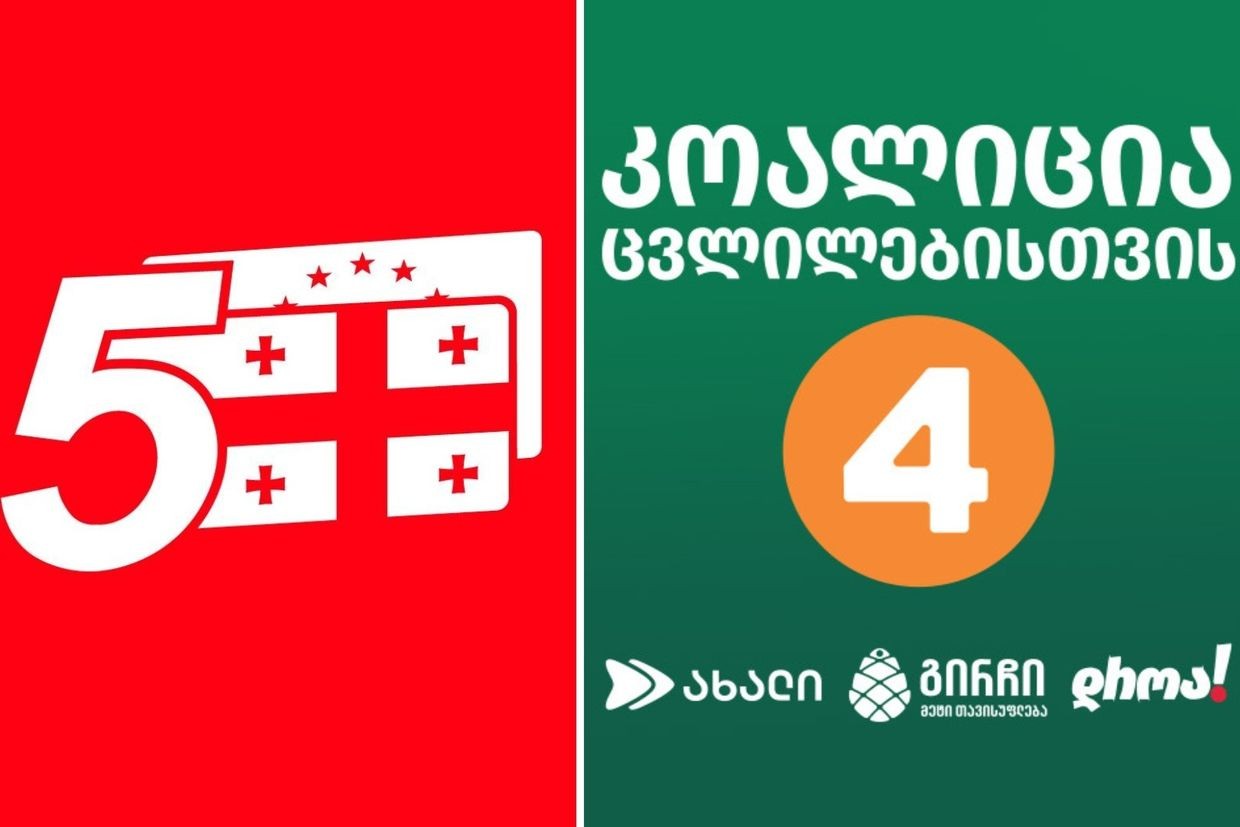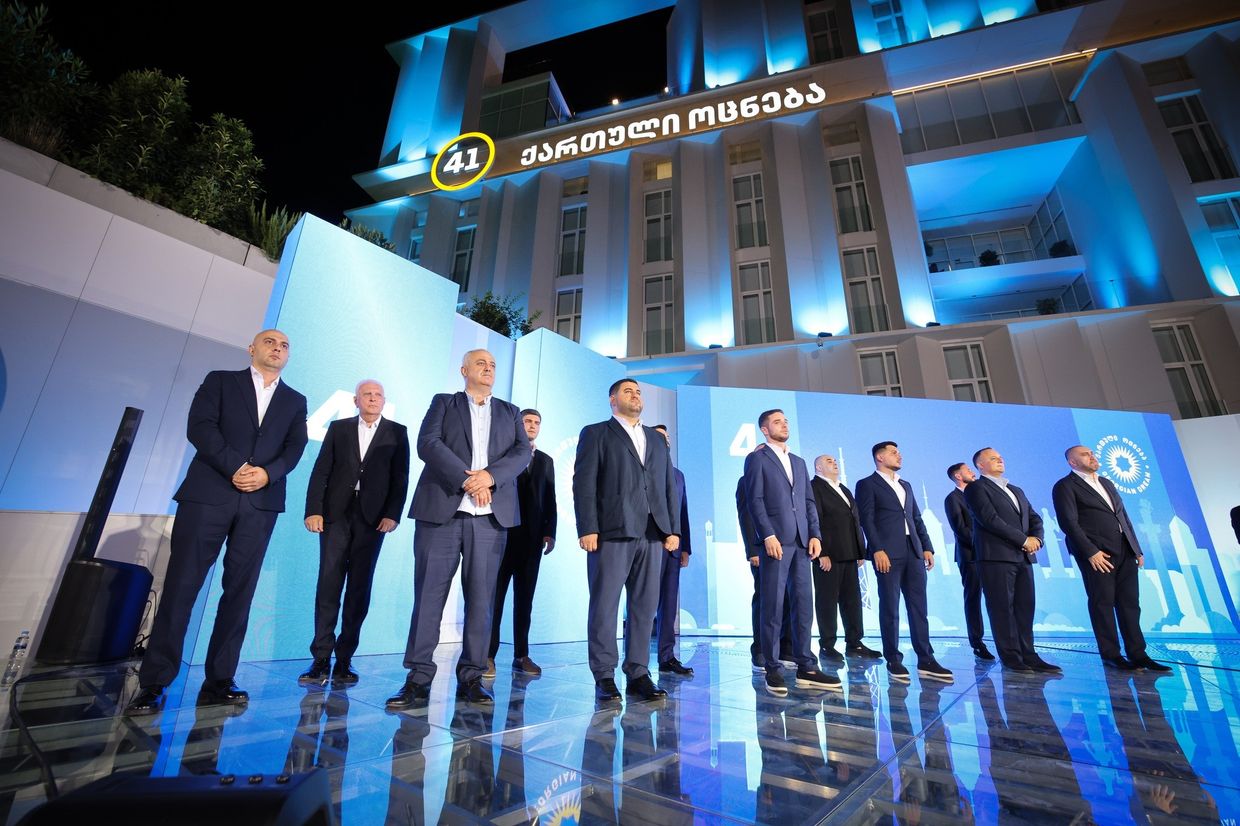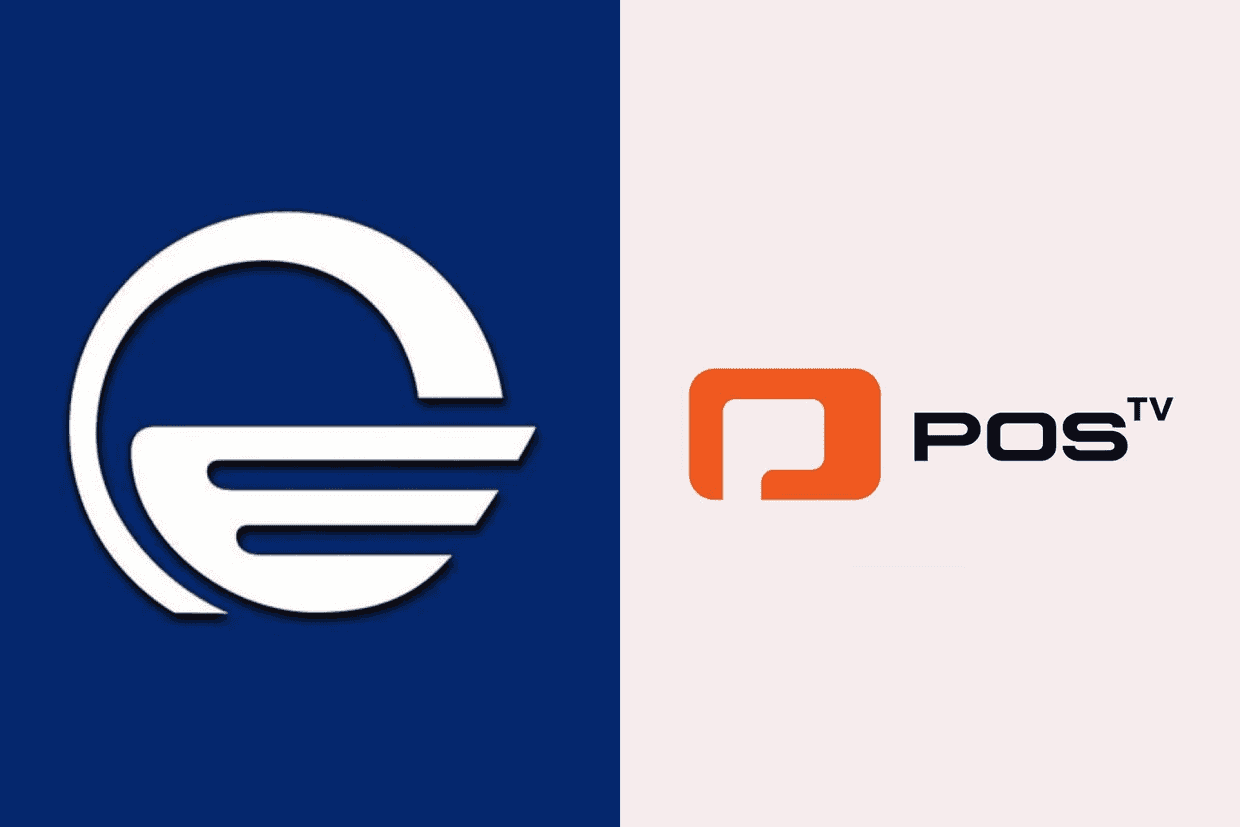
Georgia’s two largest opposition groups, the United National Movement (UNM) and Coalition for Change, have lost their electoral numbers due to their boycott of the 4 October 2025 municipal elections.
A meeting to discuss the matter was held at Georgia's Central Election Commission (CEC) on Saturday.
The UNM’s election number for more than two decades has been 5, while the Coalition for Change, formed last year by three political parties, had the election number 4.
Both numbers will be reassigned to two electoral subjects vowing to participate in municipal elections — Georgian Unity (4) and Our United Georgia (5). Neither is an active part of Georgia’s political spectrum, and little is known about them.
Commenting on the loss of its election number, UNM member Levan Sanikidze said that the party does not care about the number that ‘when democratic elections are held in this country, “number five” will return to its owner’.
According to Sanikidze, the UNM appealed to the CEC to retain its number, but the agency refused.
Opposition boycott
Eight opposition parties have announced a boycott of the municipal elections. The list includes parties from the Coalition for Change and another coalition formed around UNM last year, called Unity — United National Movement.
For them, taking part in the elections would undermine their policy of refusing to recognise Georgian Dream’s legitimacy following the disputed 2024 parliamentary elections, which were marred by major violations.
Parties in favour of participating in the elections have argued that opposition involvement in the process will strengthen the anti-government momentum and prevent Georgian Dream from gaining full control over all state institutions.
Only two major opposition parties — Lelo and For Georgia — have announced plans to take part in the elections so far. Two smaller parties — Freedom Square and For the People — which joined Lelo in a pre-2024 election coalition under the name Strong Georgia, have announced that they will not take part in the municipal vote.
At the CEC session on Saturday, it was announced that, in addition to the ruling Georgian Dream party, Lelo, and For Georgia, 14 other groups would take part in the elections.
Among them is the small libertarian party Girchi, one of the factions formed after the original Girchi party split in two in 2020. The other, Girchi — More Freedom, is a member of the Coalition for Change.
The vote will also see participation from Conservatives for Georgia — a party established by the ultra-right, pro-Russian group Alt Info — as well as the pro-Russian, ultra-conservative Alliance of Patriots.
The list included several low-profile electoral subjects with barely any public recognition.












